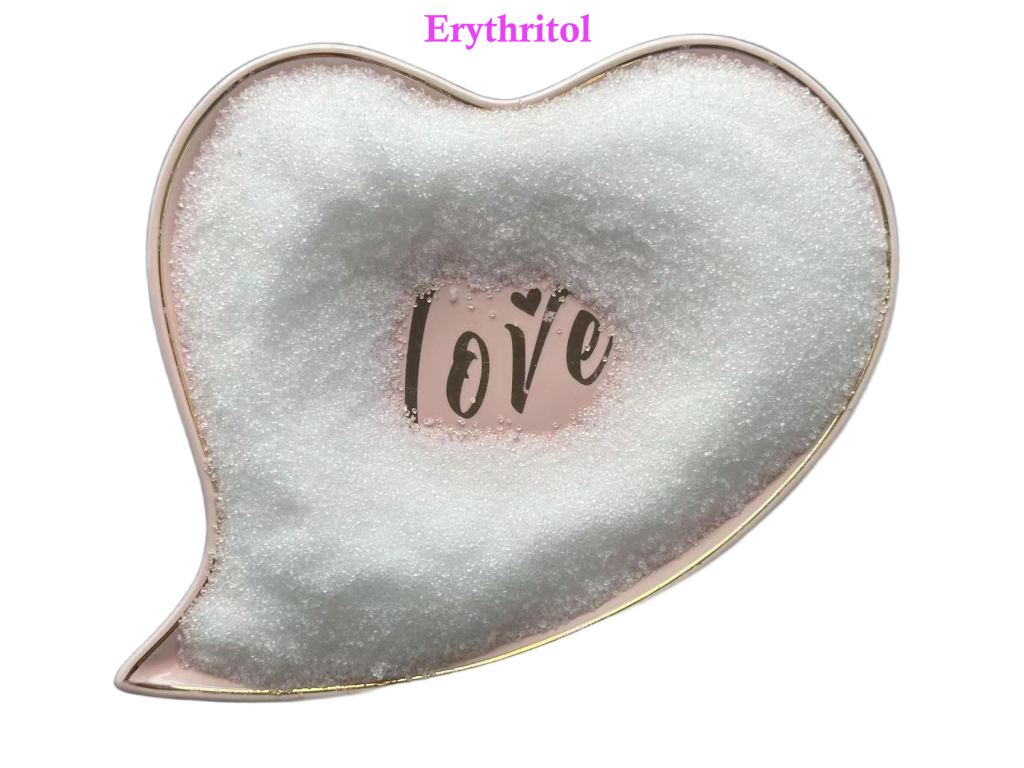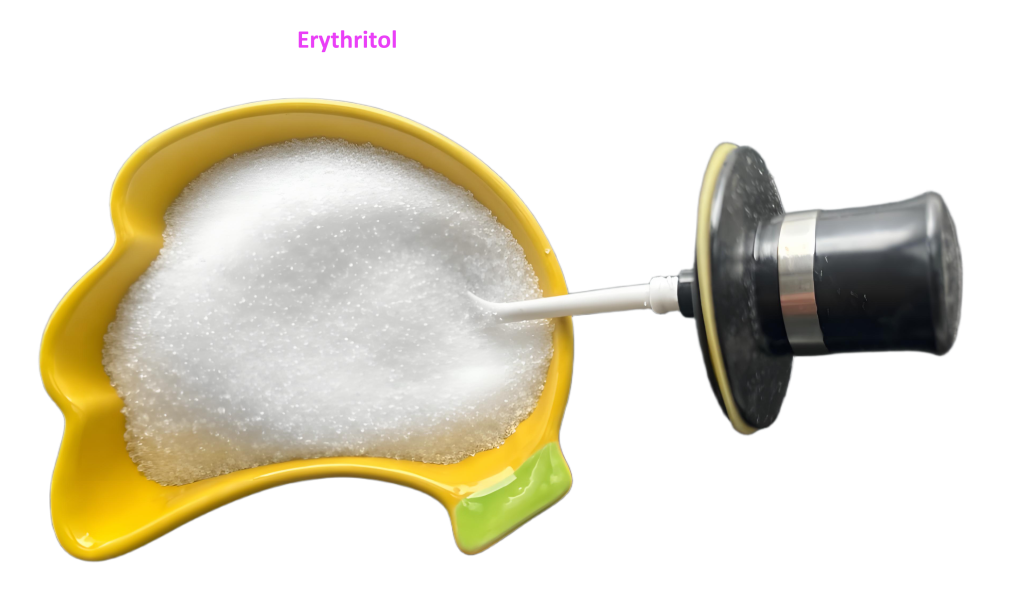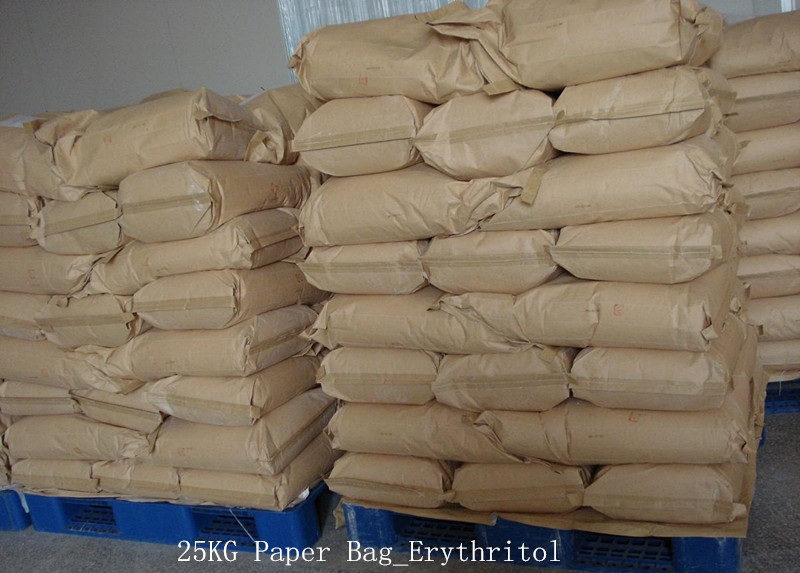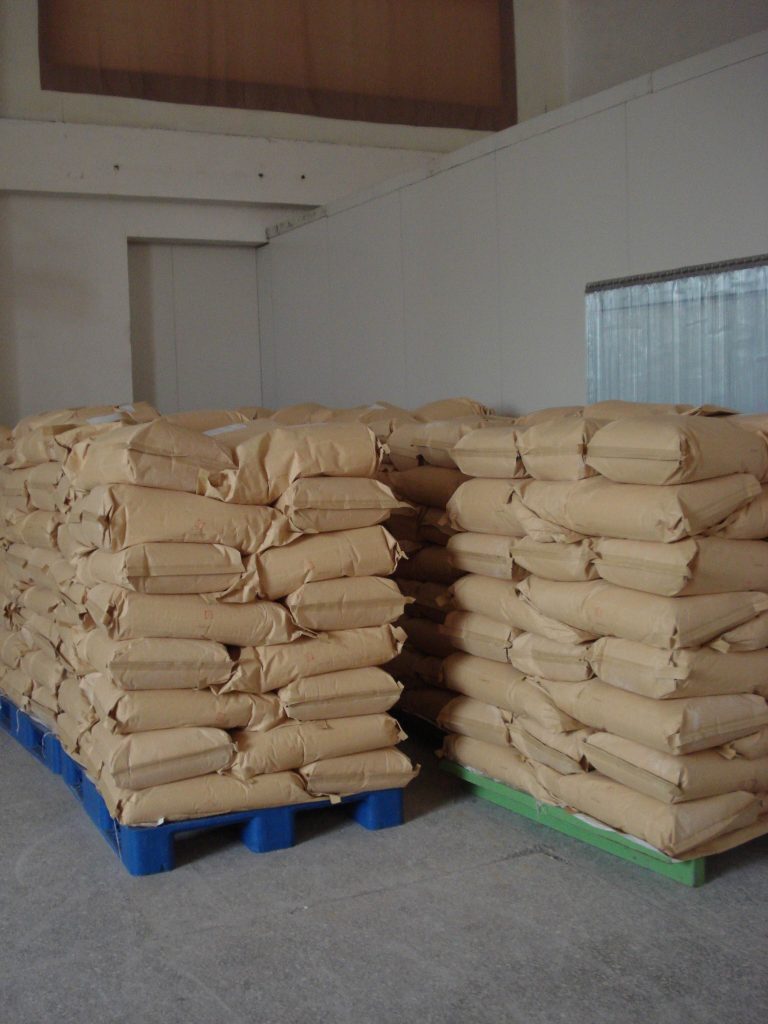What’s Erythritol sugar ?


Erythritol is a sugar alcohol, a type of carbohydrate, that is often used as a low-calorie sweetener. It occurs naturally in some fruits and fermented foods, but is also produced commercially, primarily through the fermentation of glucose derived from corn or wheat. Erythritol is about 60-80% as sweet as sugar but has only about 5-10% of the calories.
Uses of Erythritol sugar
It is a kind of Zero calorie sweetener.
A filler sweetener that can be mixed with low calorie sweeteners (e.g. acesulfame potassium and aspartame) or other polyols (e.g. sorbitol and xylitol).
Sweet and clean taste with no aftertaste.
Possible use in a variety of zero-calorie, low-calorie, low-fat and sugar-free foods and beverages, from candies to yogurts.
Beneficial for people suffering from diabetes because it does not increase insulin or blood glucose levels.
It does not contribute to the formation of cavities.
production
Erythritol is manufactured by using enzymatic hydrolysis of the starch from corn to generate glucose. Glucose is then fermented with yeast or another fungus to produce erythritol.
Is erythritol sugar safe?
Sugar alcohols like erythritol sugar have long been known to cause digestive issues for some people. But Dr. Hazen’s research has linked erythritol to much more serious troubles.
His study shows that erythritol sugar is closely associated with risk for “major adverse cardiovascular events.” In other words, people who have high blood levels of erythritol are more prone to heart attacks, stroke and even death.
Dr. Hazen and his team studied the blood of more than 4,000 people in the U.S. and Europe. They were looking for common threads that could indicate an increased risk for heart conditions. What they found was that people who had more erythritol in their blood were at elevated risk for major heart problems.
“We were looking for compounds in blood that predict risk for experiencing a future heart attack or stroke. The top candidate that kept showing up was erythritol,” he shares.
Taking it a step further, the researchers gave erythritol to non-human models. They saw enhanced clot formation in models of arterial disease. They added erythritol to blood outside of the body. And they found that adding erythritol to blood made it “clump up,” or form a blood clot by lowering the threshold to activate platelets.
Platelets are the tiny components in our blood that rush to the site of an injury to stop us from bleeding. That keeps us from bleeding out. But when platelets are activated within our bodies, they cause blood clots, which can lead to heart attacks and strokes.
“A serving of erythritol in common ‘keto-friendly’ processed food products made blood levels of erythritol go up 1,000-fold, well above the levels linked to enhanced clotting risks,” Dr. Hazen states. “We found that the risk for clotting can be increased for several days after consumption of just one serving of artificially sweetened food containing erythritol.”
How to avoid the dangers of erythritol sugar
Here’s where it can get tricky. You could be eating foods that contain erythritol and not even know it.
Erythritol falls into the category of Generally Recognized as Safe (GRAS) by the U.S. Food and Drug Administration (FDA). That means long-term safety studies of erythritol aren’t required currently. It also means food companies don’t have to list erythritol on their nutrition labels.
The FDA considers erythritol sugar safe because it’s a naturally occurring compound, Dr. Hazen explains. But the problem is that the quantities it’s used for in foods are much, much higher than what is natural and known to be safe for your body.
While your foods may not state specifically that they contain erythritol, Dr. Hazen adds that it’s commonly found in items like sugar-free varieties of:
- Ice cream
- Candy
- Gum
- Cookies
- Cakes
- Protein bars
- Fruit spreads
- Energy drinks
And there are some red flags that can be a hint that your food may contain erythritol (or another sugar alcohol), even if it’s not listed on the nutrition label. If the package includes these words or similar claims, it may indicate your food contains erythritol:
- Contains sugar alcohol
- Keto-safe
- Diabetes-safe
- No sugar
- Low-sugar
- Artificially sweetened
- Naturally sweetened
- Sweetened with natural compounds
- Low-calorie
- No calories
“It’s very troubling,” Dr. Hazen says. “We know that people buying these products are trying to do something good for their health by eating foods that are promoted as better for them. But in reality, they may be inadvertently increasing their risk for harm.”
The package of Erythritol sugar




